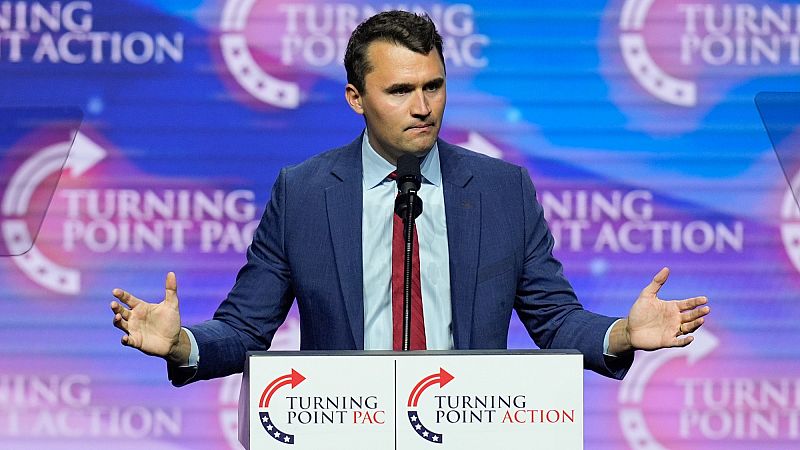
The European Parliament found itself embroiled in controversy recently after a request for a minute of silence to honor American political activist Charlie Kirk was denied, sparking heated debates and accusations of political bias. The refusal, spearheaded by Vice-President Katarina Barley, has ignited fury among conservative Members of the European Parliament (MEPs), particularly within the European People’s Party (EPP).
The Controversy Unfolds
Normally, observing a minute of silence at the commencement of a plenary session in the European Parliament is a routine and uncontroversial act. However, the situation surrounding Charlie Kirk, who was fatally shot in the neck while speaking at a college campus in Utah, proved to be anything but ordinary.
Kosma Złotowski, a Polish MEP from the European Conservatives and Reformists (ECR), expressed his dismay, stating that the denial politicized what should have been a simple act of remembrance. His group had initiated the request for the minute of silence. “There are people we want to commemorate that are important for our political group and the others should accept it,” he argued, emphasizing the need for mutual respect across the political spectrum. “We accept people from the left, they should accept people from the right.”
The specific incident that triggered the uproar occurred when Charlie Weimers, a Swedish right-wing MEP, was denied the opportunity to hold a minute of silence in Kirk’s honor. According to reports, Barley informed Weimers that the president had rejected the request. This decision was met with vocal opposition from Weimers' supporters, who reportedly booed Barley within the hemicycle.
Defending the Decision
While several socialist MEPs declined to comment directly on the Kirk case, they emphasized their commitment to adhering to parliamentary rules and supporting the decisions made by President Metsola. One MEP pointed out that Metsola herself is a member of the conservative EPP, suggesting that the decision was not solely driven by left-wing ideology.
Accusations of Double Standards
Critics of the decision, including Weimers and members of his political group, have pointed to a perceived double standard within the Parliament. They highlighted a previous instance in 2020 when a minute of silence was held to honor George Floyd, the African American man whose death at the hands of a police officer sparked widespread protests and debates about racial injustice. The contrast between the two situations has fueled accusations of political bias and inconsistent application of parliamentary rules.
The Rules of Engagement
Under the established rules of the European Parliament, the President announces minutes of silence at the opening of the plenary session. These requests must be submitted by political groups before the session begins. Some officials have noted that requests made during a plenary session are uncommon.
A Divided Parliament
While the EPP, the largest group in the Parliament, has largely remained silent on the issue, some MEPs have voiced support for the ECR's efforts to commemorate Kirk.
Miriam Lexmann, an EPP MEP, confirmed that commemorations are typically held at the opening of the plenary, explaining why the request could not be accommodated at that time. However, she also expressed her support for a future request to honor Kirk's legacy.
Lexmann went on to suggest that Kirk's death was a symptom of growing extremism and intolerance towards Christians and conservatives within the EU, including the European Parliament itself.
Precedent and Context
It is important to note that just days before this controversy, President Metsola opened a plenary session with a minute of silence for Andrii Parubii, a Ukrainian politician and former parliamentary speaker who was killed in Lviv. This commemoration was met with no opposition.
Furthermore, MEPs recently observed moments of silence to remember the victims of a funicular accident in Lisbon, the victims of wildfires across Europe, and the victims of the conflict in Gaza. These instances highlight the Parliament’s usual willingness to acknowledge and commemorate tragedies and significant events.
The refusal to grant a minute of silence for Charlie Kirk has exposed deep divisions within the European Parliament and raised questions about the consistency and impartiality of its procedures. The debate underscores the challenges of navigating political sensitivities and ensuring that acts of remembrance are perceived as fair and inclusive. Whether a future request to honor Kirk will be considered remains to be seen, but the controversy has undoubtedly left a mark on the institution and its members.


No comments:
Post a Comment